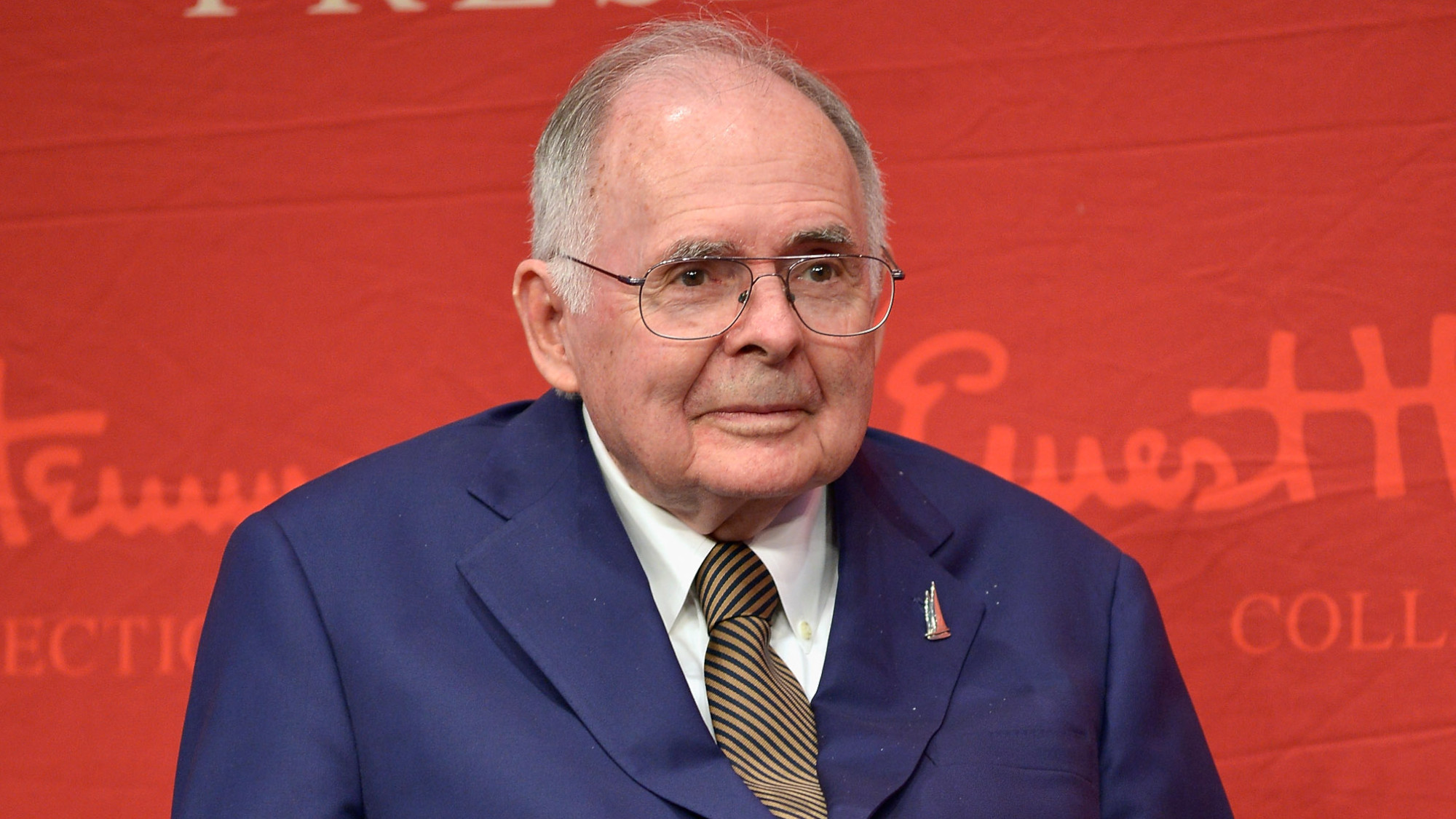Obituaries
Philipp Freiherr von Boeselager
A free daily email with the biggest news stories of the day – and the best features from TheWeek.com
You are now subscribed
Your newsletter sign-up was successful
The German officer who tried to kill Hitler
Philipp Freiherr von Boeselager
1917–2008
The Week
Escape your echo chamber. Get the facts behind the news, plus analysis from multiple perspectives.

Sign up for The Week's Free Newsletters
From our morning news briefing to a weekly Good News Newsletter, get the best of The Week delivered directly to your inbox.
From our morning news briefing to a weekly Good News Newsletter, get the best of The Week delivered directly to your inbox.
Adolf Hitler was conducting a briefing at the Wolf’s Lair, his military headquarters in East Prussia, on July 20, 1944. At 12:40 p.m., the conference room was ripped apart by a hidden bomb, killing several personnel—but not, as the bombers had hoped, the Führer. Most of the 200 conspirators were caught and executed. Among those who were not was army Maj. Philipp Freiherr von Boeselager. He died last week at 90, the last survivor of the plot.
Boeselager, who had been educated by Jesuits, didn’t turn against the Nazi regime until 1942, said The New York Times. “It was no longer about saving the country,” he said, “but about stopping the crimes.” Anti-Hitler forces initially approached him to shoot both Hitler and SS chief Heinrich Himmler “at close range.” But when Himmler didn’t show up as expected a March 13, 1943, meeting at which Hitler was present, the attempt was called off and the plotters opted for a bomb. “Boeselager, assigned to an explosives research team, was able to acquire top-grade English explosives.”
Col. Claus von Stauffenberg planted Boeselager’s bomb, said the London Telegraph. When it detonated, Boeselager was en route to Berlin to help overthrow the government. After learning that Hitler was only injured in the blast, he scrambled to return to the front, barely escaping detection. “One of his comrades was killed as he rode over a mine, and Boeselager had to retrieve a strategic map of Berlin from the dead man’s pocket which, if found, would have exposed him.”
After the war, Boeselager studied law and economics and was honored by Germany and France for his heroism. The memory of his missed opportunity haunted him. “I always see Hitler from here to the fireplace in front of me,” he once said, indicating a distance of about 2 feet, “and think, What would have happened if you had shot him?”
A free daily email with the biggest news stories of the day – and the best features from TheWeek.com
-
 The week’s best photos
The week’s best photosIn Pictures An explosive meal, a carnival of joy, and more
-
 The ‘ravenous’ demand for Cornish minerals
The ‘ravenous’ demand for Cornish mineralsUnder the Radar Growing need for critical minerals to power tech has intensified ‘appetite’ for lithium, which could be a ‘huge boon’ for local economy
-
 Why are election experts taking Trump’s midterm threats seriously?
Why are election experts taking Trump’s midterm threats seriously?IN THE SPOTLIGHT As the president muses about polling place deployments and a centralized electoral system aimed at one-party control, lawmakers are taking this administration at its word
-
 Catherine O'Hara: The madcap actress who sparkled on ‘SCTV’ and ‘Schitt’s Creek’
Catherine O'Hara: The madcap actress who sparkled on ‘SCTV’ and ‘Schitt’s Creek’Feature O'Hara cracked up audiences for more than 50 years
-
 Bob Weir: The Grateful Dead guitarist who kept the hippie flame
Bob Weir: The Grateful Dead guitarist who kept the hippie flameFeature The fan favorite died at 78
-
 Brigitte Bardot: the bombshell who embodied the new France
Brigitte Bardot: the bombshell who embodied the new FranceFeature The actress retired from cinema at 39, and later become known for animal rights activism and anti-Muslim bigotry
-
 Frank Gehry: the architect who made buildings flow like water
Frank Gehry: the architect who made buildings flow like waterFeature The revered building master died at the age of 96
-
 R&B singer D’Angelo
R&B singer D’AngeloFeature A reclusive visionary who transformed the genre
-
 Kiss guitarist Ace Frehley
Kiss guitarist Ace FrehleyFeature The rocker who shot fireworks from his guitar
-
 Robert Redford: the Hollywood icon who founded the Sundance Film Festival
Robert Redford: the Hollywood icon who founded the Sundance Film FestivalFeature Redford’s most lasting influence may have been as the man who ‘invigorated American independent cinema’ through Sundance
-
 Patrick Hemingway: The Hemingway son who tended to his father’s legacy
Patrick Hemingway: The Hemingway son who tended to his father’s legacyFeature He was comfortable in the shadow of his famous father, Ernest Hemingway